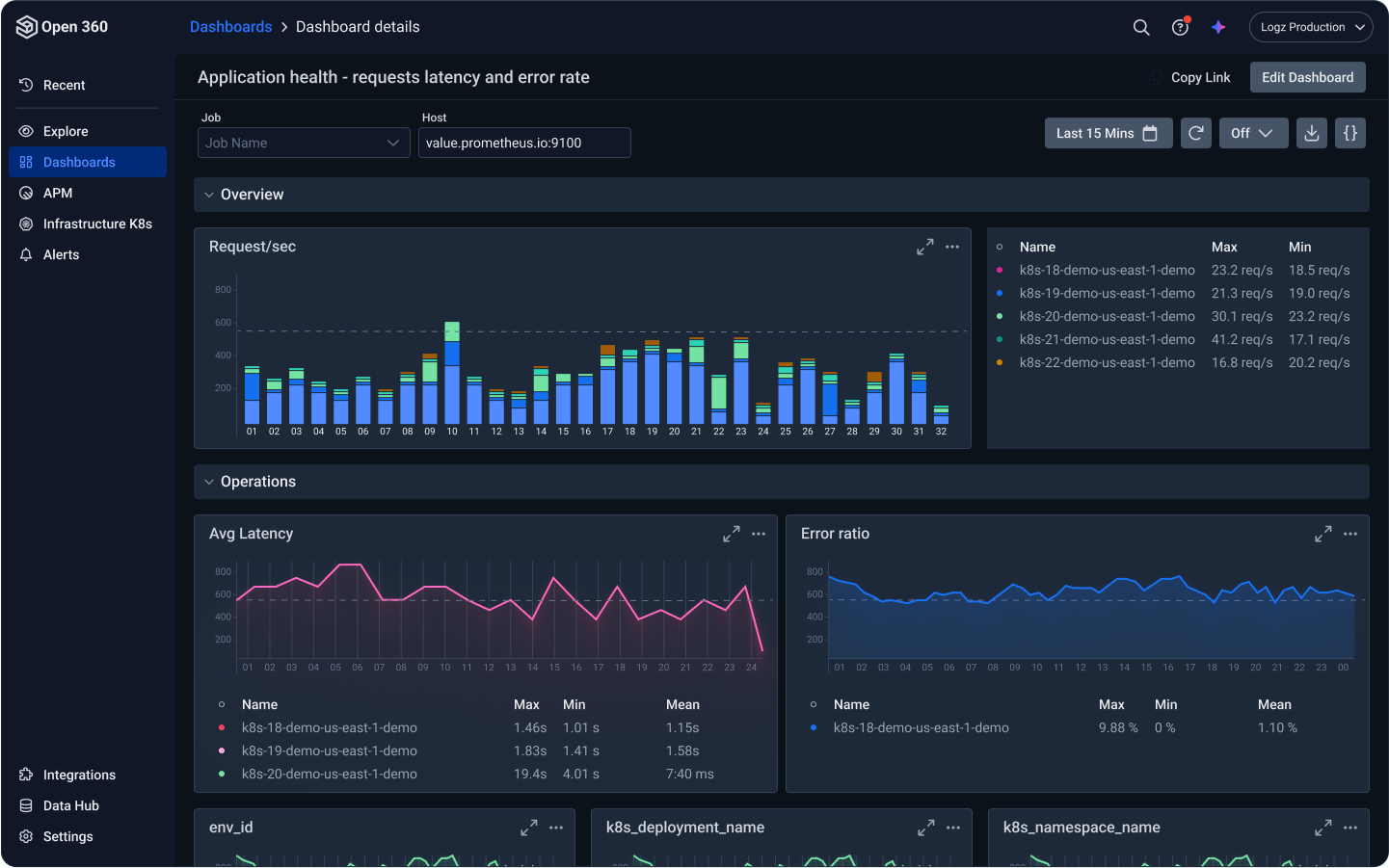
Logz.io Moves to Embrace OpenSearch at the Core of its Platform
November 15, 2021

As Logz.io prepares to hold its annual ScaleUP user conference tomorrow, celebrating another amazing year of customer success and continued advancement of our observability platform, we’ve got exciting news to share about our involvement with the OpenSearch project.
Over the next several weeks, Logz.io will formally switch its backend database from Elasticsearch to OpenSearch – ensuring that our customers are provided with the best possible capabilities on the market and that we remain completely committed to delivering a platform based firmly on open source.
On June 2021 OpenSearch reached general availability status, after successfully passing the preceding alpha, beta, and RC releases. Our rigorous testing, as well as by the broader community, has validated its readiness for production use.
Since Logz.io’s founding, we’ve incorporated Elasticsearch and Kibana at our core, adapting and extending those building blocks into a formidable product by adding our own highly innovative capabilities. However, since the relicensing of the ELK Stack by its parent company Elastic in January, we’ve been working closely with AWS and other OpenSearch contributors to rapidly advance this alternative – a community-driven, open-source approach to building modern observability.
On June 2021 OpenSearch reached general availability status, after successfully passing the preceding alpha, beta and RC releases. The rigorous testing by us as well as by the broader community has validated its readiness for production use.
For Logz.io customers, this shift to OpenSearch will be seamless. While there is no direct change in the product interface you should quickly notice a performance boost during log queries thanks to OpenSearch’s improved efficiency. And this is merely the first step of our larger effort to put OpenSearch squarely at the center of our products.
In 2022, we’ll move from use of Kibana visualizations to OpenSearch Dashboards, the OpenSearch fork of the ubiquitous Kibana visualization dashboard. In the same manner of today’s announcement, this advancement will be 100% focused on enabling customers with the dedicated capabilities needed to carry out their work – improving our platform without any major changes to its UI with the promise of delivering even greater functionality.
As noted, these announcements have been some time in the making and represent a long-term strategic transition to further adopt OpenSearch and open source into the operational source code of Logz.io. We are doing so not only because we believe in this critical community driven approach to building software, but just as importantly, because we want to provide our customers with the most advanced and innovative observability.
OpenSearch will now sustain our ability to carry the open source torch that was unfortunately challenged by the Elasticsearch licensing change. In a related move, we’ve also based our new log exporter on the more efficient Fluentd following Elastic’s lockdown of Filebeat.
As my colleague and fellow co-founder Tomer Levy wrote back when we first became involved in OpenSearch, we are actively “doubling down” on open source because we know that this is the right path for Logz.io’s future in supporting the evolving needs of its customers.
It’s an exciting time to be at Logz.io – pushing the continued innovation and advancement of open source observability both in our products and through our work with the larger community.
Stay tuned for more news as we continue to execute on this strategy!




